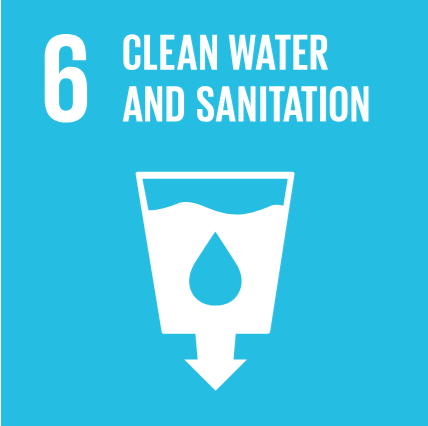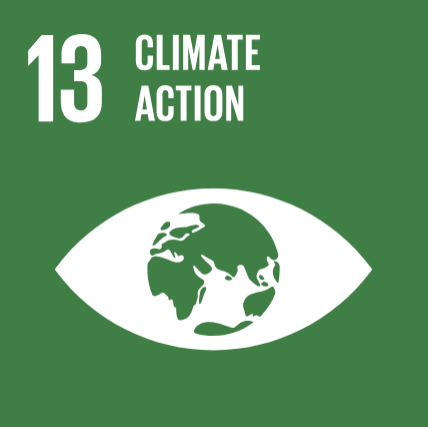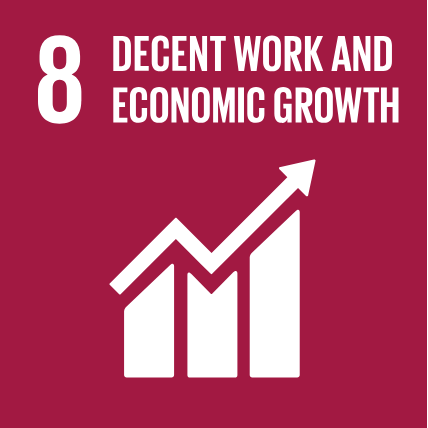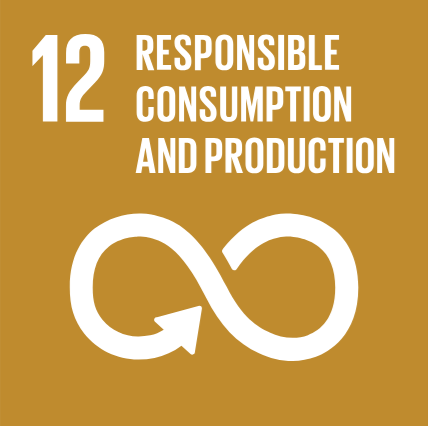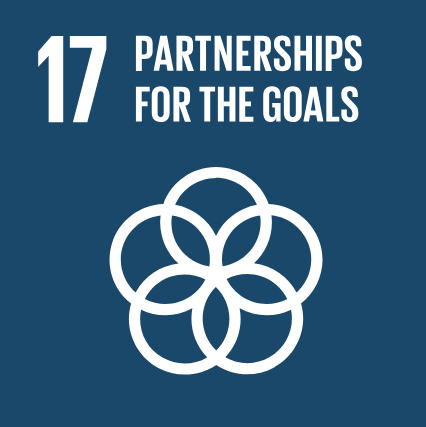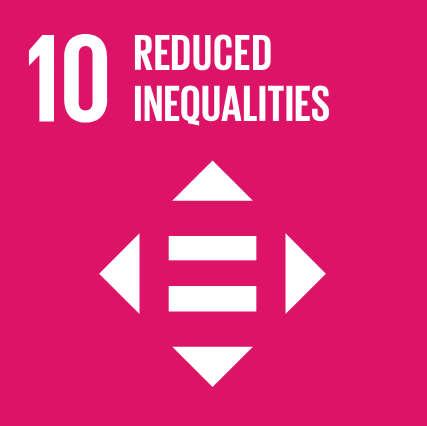Sustainable Development, the Ultimate Work/Life Balance
We’re honoured that Share Skipton has made it to the finals in not one but two categories at the 2025 Skipton Business Awards. Nominated as ‘Skipton’s Shining Star’ (for all-round voluntary efforts based out of the library of Things) and ‘Best Event’ (for our free, monthly repair cafés), the results are de to be announced on Monday the 6th of October.
Although we're a volunteer group and registered charity rather than a business, these annual awards celebrate a variety of organisations for their quality of service, contribution to the local economy, innovation, sustainability, and overall benefit to the community. We appreciate the recognition and would like to thank everyone who nominated us, as well as Skipton BID who organise the awards. For anyone not familiar with the concept of a Business Improvement District, they’re not-for-profit partnerships of businesses that work to make their towns more pleasant and prosperous places to live, work and visit.
With that in mind, what better excuse for a business-centric look at sustainability and environmentalism. Whether you’re an owner, manager or employee, cast your eye over these aspects of people, profit and planet, and think about how they relate to your company.
Life on land
This is about protecting biodiversity and ecosystems. If you work in construction or manage a plot of land, you have a direct impact: you know your work best, so this might mean proper disposal of waste materials to maintain soil quality, clearing away no more vegetation than necessary, or taking care not to disturb wildlife during nesting and hibernation seasons. Go the extra mile by adding or restoring green areas and creating additional habitat.
For most businesses though, this revolves around purchasing materials from verified, sustainable sources, and in the case of retailers especially, making sure your suppliers do the same. The top causes of worldwide deforestation that we in the UK are indirectly responsible for are clearing space for palm oil and soya-based animal feed production, followed by wood, cocoa and coffee.
Life below water / Clean water and sanitation
The focus of ‘Life below water’ is marine life, so unless you work at the local fishmonger’s, it'll be more helpful to think about your impact on rivers and streams. Kitchen waste and groundwork sediment can both block drains if improperly handled, causing contaminated water to back up and overflow into public waterways and destroy aquatic ecosystems.
And if you handle chemicals or harsh cleaning products, how are they disposed of and where do they go when you pour them away? Did you know there are biodegradable cleaning liquids out there? Pick up a sample at our monthly Repair Cafés if you want to try some for yourself.
Sensible water use falls under this domain too: sensor-activated taps, water-saving toilets, efficient appliances. Rainwater collection isn't just for the home gardeners either!
Climate action
We're talking greenhouse gases here: does your place of work waste energy by leaving HVAC and computer equipment on when no-one’s there? Are you overdue upgrading to cleaner-running, more efficient machinery, the same way as we all switched to LED lightbulbs? And a quick online search into your energy supplier or bank can be eye-opening, given how invested some of them still are in fossil fuels - worth shopping around?
Promoting and supporting active travel (walking/cycling) or shared transport are easy ways to cut emissions linked to employee commutes, as is implementing remote or hybrid working where possible. And simply talking to colleagues about climate change can really get people thinking about their own behaviours, something we've seen first-hand at Share Skipton.
Industry, innovation and infrastructure
The aim of this one is for market sectors to recognise a good idea when it happens, enabling new, sustainable business models and creative risk-taking to break through and be rewarded for it. Inspiration could come from any of the other domains we’ve been talking about here, so if you have an idea then write it down, share it with your team and give it a try.
If you work in a service industry, think about the downstream impact you can have by integrating sustainability into the service you provide. If you’re a manager, have this page open next time you’re reviewing your department’s policies. There’s also a need to bring any businesses that are lagging up to speed if they want to remain viable. If this is you, look into current best practices and consider the benefits of retrofitting your premises.
You might have noticed by now (in case the title wasn’t enough of a giveaway) that these are the United Nations’ Sustainable Development Goals, described as the ‘blueprint for a better future’. There are 17 SDGs in total, built with the added input of the private and public sectors, researchers, and governments. You don’t need to take on all of them at once, and some will be more relevant to you than others, so identify which you want to focus on and make a start. Keep in mind that, while making positive changes towards a goal, you’ll also need to limit negative effects on others. You can find more resources at the end of this article.
Let’s keep going…
Decent work and economic growth
This goal is about creating jobs that are safe, fair, and sustainable while driving economic progress. If you’re an employer, think about whether your workplace offers fair pay, good working conditions, and opportunities for colleagues to develop their skills. You’ll notice that most if not all of the Skipton Business Award nominees invest in their people through training and development programmes. Not only do customers love the better service, but increased job satisfaction means lower staff turnover and more opportunity for innovation.
For most organisations, it also means ridding your supply chain of unethical practices: look at scandals in the fashion industry to see what can go wrong when this doesn’t happen. Thinking about the health of Skipton’s economy, choosing local, independent suppliers is a great way to keep money circulating in the area, the long-term benefits outweighing small, up-front price differences.
Responsible consumption and production
Responsible consumption and production is one of our professional favourites, it’s a big part of why Share Skipton’s here. But you don’t need to be a library of Things to use resources efficiently and reduce waste in everything you do. The carbon savings of reading a document digitally instead of printing can be substantial, especially over your entire career. If you’re in charge of purchasing, ask whether what you’re buying is durable, repairable, and even needed to begin with. How many single-use items can you think of that could be swapped for something re-usable or refillable?
For equipment you’ve finished using, does your company have a safe disposal process, and do you know it? We’re not just talking about recycling, because all sorts of perfectly good items that could have be collected, refurbished, sold on and reused still get thrown away.
We’ve only scratched the surface of goal 12, doing more with less within your own four walls. Retailers and manufacturers have a huge part to play in responding to and enabling the public’s desire to consume sustainably: see our full Circular Economy article on the topic.
Partnerships for the goals
Just as it takes many people to make a healthy business, no single organisation can tackle all these challenges alone. In fact we’ve already mentioned a few different ways you can work with your suppliers and customers; like many of the goals, threads of goal 17 run through several others.
Go back and map out every entity you interact with as a business: service providers and existing partnerships …is there anything to be gained from pooling resources and collaborating further? Clients and regulators …what opportunities for learning are there, or to develop solutions with a wider application? Even taking a moment to think about your competitors, there have been famous examples of rival companies getting together to do some pretty amazing things.
Once you’ve identified everyone you do work with, don’t forget everyone you don’t. Business networks, research bodies, public-sector orgs, and charities that share similar goals. :D
Reduced inequalities
This is the final goal we’ll go into for now, but segues nicely into the socially-minded domains which deal with hunger, different types of poverty, and gender inequalities. The broad aim is to make opportunities and resources accessible to everyone, regardless of identity or circumstance. In the workplace, that could mean reviewing recruitment and promotion practices to ensure they’re fair and inclusive – are there any signs of a ‘jobs for mates’ culture for example, or unclear/undocumented decisions being made about staff? Could an outdated company policy be inadvertently making things difficult for anyone? There can be a lot to consider, but paying attention to feedback and complaints is often a good place to start.
Out in the wider community, bakeries and supermarkets have taken to donating surplus stock to Skipton Food Bank, so what would your equivalent be? Could you refer struggling customers to a debt charity, or partner with a relevant community group to support them indirectly?
Like we said, there are 17 goals in all, covering a wide range of common problems faced right across the world. You can view the Blueprint for Business Leadership on the SDGs by clicking the grid above. We wish you luck implementing sustainable changes where you work.
If you’d like to help us in our local efforts towards goals 12, 10, 13 and 11 in particular (with knock-on benefits into other areas such as 15, 8, 4 and 5), please do us a solid 17 by visiting the Support Us page, or Volunteer today.
External references and further reading
Skipton BID (skiptonbid.com) , Deforestation: Causes and Legislation (europa.eu) , Sustainable Energy Suppliers (which.co.uk) , Sustainable Bank Lookup (bank.green) , Six Real-life Coopetition Examples (breezy.io) , Skipton Food Bank (skiptonfoodbank.org) , StepChange Debt Charity (stepchange.org) , SDGs for Small Businesses (business.com) , Defining Your SDGs to Accelerate Innovation (mariahalseduloquin.com) , How the UK is Performing on the SDGs (unglobalcompact.org.uk) , The 17 Goals (sdgs.un.org) , SDGs World Rankings - United Kingdom (sdgindex.org) , Blueprint for Sustainable Business Leadership (unglobalcompact.org)/PDFs



